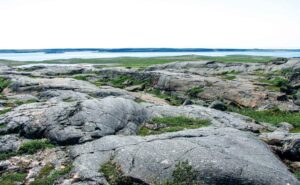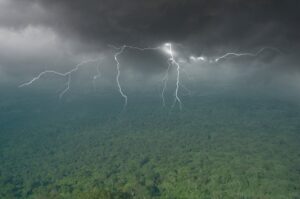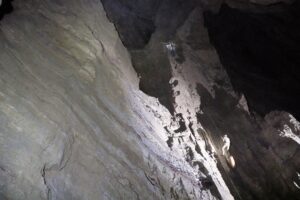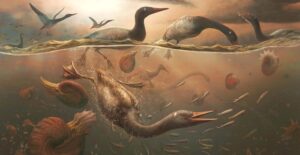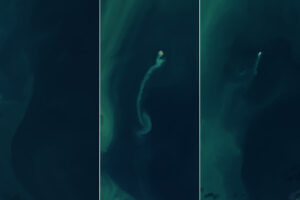Eons ago, Earth experienced a succession of chaotic events: meteors, the extinction of dinosaurs, and the upheaval of the continents. But somehow, a tough, microscopic substance survived. This was the world’s oldest plant, Takakia.
Takakia is over 390 million years old. A type of moss, it grows high on the Tibetan Plateau and in other select parts of the world. Because of its extreme adaptability, Takakia is perhaps the most resilient plant species on our planet.

Takakia growing on a mountain. Photo: Ruoyang Hu
Scientists believe that Earth’s first plants evolved from green algae. They spread and caused a major shift in our air composition. Our atmosphere’s oxygen content skyrocketed.
Surviving an extreme environment
Approximately 65 million years ago, the Indian and Eurasian tectonic plates collided, forming the Himalaya. The world’s highest mountain range is a harsh environment for life. There is limited oxygen, frigid temperatures, and high UV.
Until the 1950s, most scientists believed nothing could survive at extreme altitudes. Then, William Mitten discovered what he believed was a liverwort. Decades later, subsequent studies determined it was a moss. This was Takakia.
The moss’s very small leaves measure roughly 1mm. They grow in irregular patterns and have a cylindrical appearance. Takakia absorbs water and carbon dioxide through its cells rather than through stomata — tiny pores in the leaves. This is a distinctive trait of Earth’s first plants.
Over millions of years, the moss has adapted to intense radiation. Its physical appearance has not changed, but scientists can see a variety of changes at the molecular level.

Moss on trees and rocks. Photo: Hanahstocks/Shutterstock
You can find Takakia in the Himalaya, some parts of the U.S., Canada, Taiwan, Borneo, Japan, and the Aleutian Islands. According to recent studies, this ancient moss is at risk of extinction. It has a very slow reproductive rate and does not spread spores easily.

